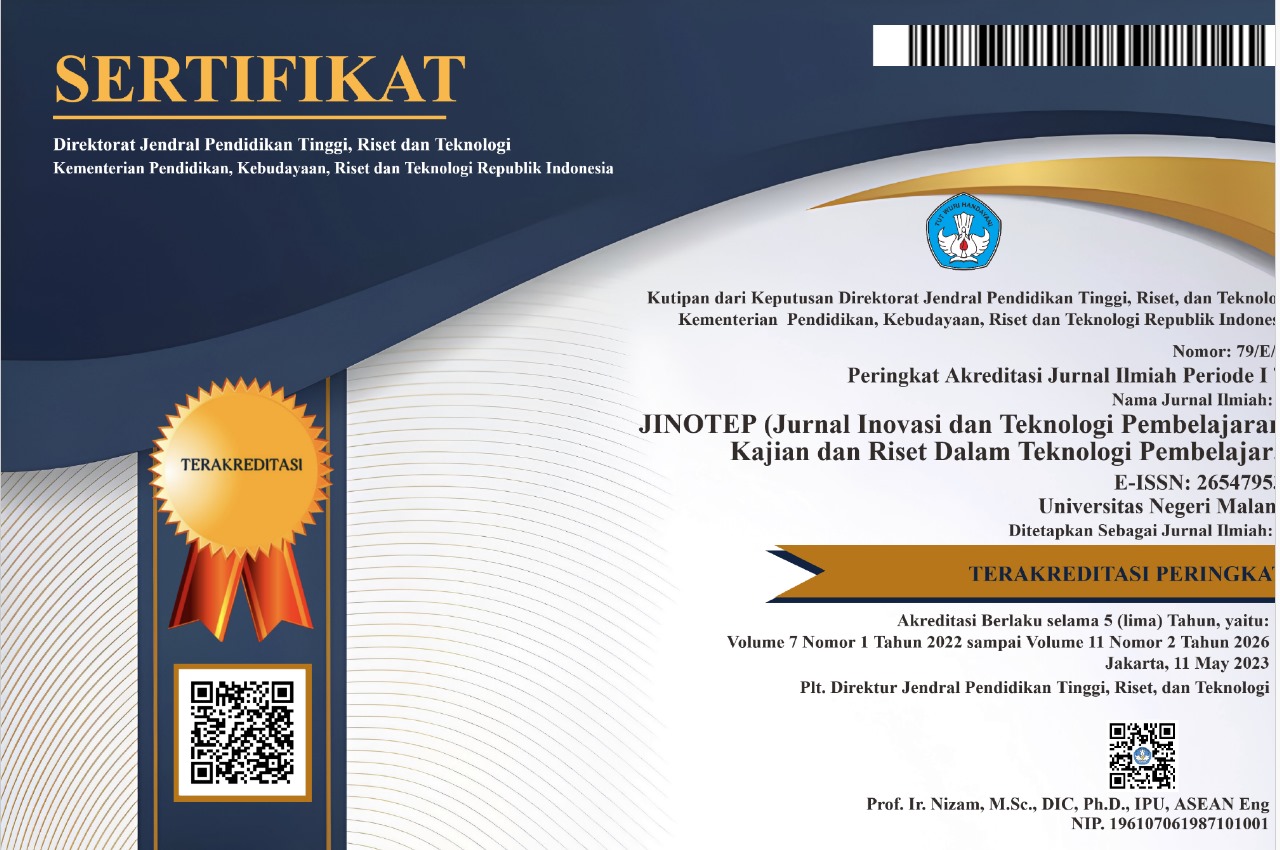Pengaruh Kecerdasan Emosional dan Lingkungan Keluarga terhadap Kinerja Guru Pendidikan Kewarganegaraan SMA Di Sulawesi Utara
Abstract
Abstrak: Penelitian ini bertujuan untuk mengetahui pengaruh kecerdasan emosional dan lingkungan keluarga terhadap kinerja guru baik secara parsial maupun simultan. Penelitian ini adalah penelitian kuantitatif dengan mengunakan metode servei. Data dikumpulkan melalui angket dari 61 guru dan 183 siswa sebagai sampel yang pilih dengan teknik multistage sampling. Pengujian instrumen dengan uji validitas dan uji reliabilitas. Teknik analisis data yang digunakan adalah dianalisis secara deskriptif dan inferensial dengan analisis regresi dan korelasi berganda. Hasil pengujian hipotesis pertama diperoleh koefisien arah regresi b1 = 0,255 dan nilai thitung = 2,581 lebih besar dari nilai ttabel maka HO ditolak, ini berarti bahwa kecerdasan emosional berpengaruh positif terhadap kinerja guru. Hasil pengujian hipotesis kedua diperoleh koefisien arah regresi b2 = 0,570 dan nilai thitung = 5,812 lebih besar dari nilai ttabel maka HO ditolak, ini berarti bahwa lingkungan keluarga berpengaruh positif terhadap kinerja guru. Hasil pengujian hipotesis ketiga diperoleh nilai Fhitung = 1270,927 lebih besar dari nilai Ftabel maka kecerdasan emosional dan lingkungan keluarga secara bersama-sama berpengaruh positif terhadap kinerja guru. Hasil ini menegaskan bahwa kinerja guru dapat ditingkatkan melalui peningkatan kecerdasan emosional dan kondusifnya lingkungan keluarga. Kedua variabel bebas tersebut saling melengkapi, memperkuat, memperkokoh dan mengoptimalkan kompetensi yang dibutuhkan untuk memaksimalkan kinerja guru.
Abstract: This study aims to determine the effect of emotional intelligence and family environment on teacher performance both partially and simultaneously. This research is quantitative research using survey method. Data were collected through questionnaires from 61 teachers and 183 students as selected samples with multistage sampling techniques. Testing instruments with validity and reliability tests. The data analysis technique used was analyzed descriptively and inferentially with regression analysis and multiple correlations. The results of testing the first hypothesis obtained the regression direction coefficient b1 = 0.255 and the value of tcount = 2.581 is greater than the value of ttable then HO is rejected, this means that emotional intelligence has a positive effect on teacher performance. The results of testing the second hypothesis obtained the regression direction coefficient b2 = 0.570 and the value of tcount = 5.812 is greater than the value of ttable then HO is rejected, this means that the family environment has a positive effect on teacher performance. The results of testing the third hypothesis obtained the value of Fcount = 1270.927 greater than the value of F table, emotional intelligence and family environment together have a positive effect on teacher performance. This result confirms that teacher performance can be improved through increasing emotional intelligence and a conducive family environment. The two independent variables complement, strengthen, strengthen and optimize the competencies needed to maximize teacher performance.
Keywords
Full Text:
PDFReferences
Colin Rose dan Malcom J. Nicholl. 2002. Cara Belajar Cepat Abad XXI, penerjemah Dedy Ahimsa. Bandung: Nuansa Direktur Organisasi Pendidikan, Ilmu Pengetahuan, dan Kebudayaan PBB (UNESCO). Kompas, 21 September 2010
Eni Asih. 2007. “Pengaruh Motivasi, Metode Pembelajaran, Lingkungan Sekolah, dan Lingkungan Keluarga Terhadap Prestasi Belajar”. Semarang
Goleman. 1999. Kecerdasan Emosi untuk Mencapai Puncak Prestasi. Jakarta: Gramedia Pustaka Utama
H. Veithzal Rivai dan Sylviana Murni, 2009. Education Management. Jakarta: Rajawali Pers
Indriyo Gitosudarmo. 2008. Perilaku Keorganisasian. Yogyakarta: BPFE
Joseph A. Devito. 1997. Human Communication, Alih Bahasa Agus Maulana, Jakarta: CPA
M. Dalyono. 1997. Psikologi Pendidikan Jakarta: Rineka Cipta
Munandir. 2001. Ensiklopedia Pendidikan. Malang: Um Press
Robert K. Cooper dan Ayman Sawaf. 2002. Executive EQ, penerjemah Alex Tri Kantjono Widodo. Jakarta: Gramedia Pustaka Utama
Sedarmayanti. 2001. SDM dan Produktivitas Kerja. Bandung: Mandar Maju
Sofyan S. Willis. 2009. Konseling Keluarga, Family Counseling. Bandung: Afabeta
Sudarwan Danim. 2010. Pedagogi, Andragogi, dan Heutagogi. Alfabeta: Bandung.
Suharsosno. 2003. Mencerdaskan Anak Depok: Inisiasi Press
Taufik Bahaudin. 2007. Brainware Leadership Mastery. Jakarta: PT Alex Media Komputindo Tekad Wahyono, Memahami Kecerdasan Emosi Melalui Kerja Sistem Limbik, Indonesian Psychological Journal Universitas Wangsa Manggala Anima Surabaya Vol. 17, No.1 tahun 2001, h. 37
Uzer, Moh Usman. 2005. Menjadi Guru Profesional. Bandung:Remaja Rosdakarya Wasty Soemanto, 2006. Psikologi Pendidikan. Jakarta: Rinek
DOI: http://dx.doi.org/10.17977/um031v2i22016p313
Refbacks
- There are currently no refbacks.
Copyright (c) 2016 Apeles Lexi Lonto

This work is licensed under a Creative Commons Attribution-ShareAlike 4.0 International License.
======================================================================
Jurnal Inovasi dan Teknologi Pembelajaran published by Universitas Negeri Malang in collaboration with the Asosiasi Program Studi Teknologi Pendidikan Indonesia (APS TPI) and Ikatan Profesi Teknologi Pendidikan Indonesia (IPTPI) with a MoU.
Publisher Address:
Educational Technology Laboratorium, Building D5, 1st Floor
Faculty of Education, Universitas Negeri Malang
Semarang St. No. 5, Malang City, East Java Province, Postal Code 65145
Email: jinotep.fip@um.ac.id
======================================================================

JINOTEP is licensed under a Creative Commons Attribution-ShareAlike 4.0 International License.
JINOTEP Statistics (Since July 13th, 2020)


.png)




.png)
1.png)
1.png)
4.png)
2.png)
1.png)
1.png)
.png)


_3.png)





1.png)
.png)